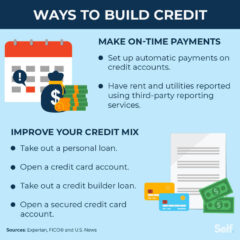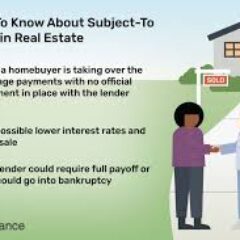– Wrap
Wrap A wrap means a wrap around mortgage. It’s called a wrap because it’s a type of seller financing where the seller agrees to create a brand new mortgage that wraps around the existing financing. The existing financing could be the first mortgage or first and second mortgage. You need to get permission from the […]
Short Sale
What is a short sale? A short sale is where you make an agreement with the bank to accept payment terms, many times are less than what is owed on the mortgage. How does a short sale with the bank affect my credit score? A short sale can have a significant impact on your credit […]
– Buy a Short Sale
Many times pre-foreclosure lead will turn into a possible short sale with the bank. Short sale definition is the bank accepting less than what is owed for a payoff on the loan. It is a time consuming process. It is not fast and it is not always successful. Think about it from the bank’s perspective: would you take […]
– Create a Short Sale Package
Documents The Seller Needs To Sign The documents the seller needs to sign include the following: * A Short Sale Disclosure * A Quit Claim Deed * Two Different Purchase And Sale Agreements * An Escrow Letter * An Authorization To Release Information * A Limited Power Of Attorney * And a Hardship Letter […]
Selling Properties for Cash
Selling Properties for Cash You can: Sell to another investor for cash Sell to a consumer buyer for cash Sell to an investor, seller carry, take a note for equity, and sell the note at a discount Understand some Tax issues: What the IRS says about Buying and Selling Properties – Dealer Status
– Selling Notes
Selling notes in real estate investing This means you’re selling promissory notes that are secured by real estate that are in either first or second position. So if you have a first position note for $60,000, and the properties worth $100,000, the loan of value is 60 / 100 or 60%. . This means that if […]
— Partials
It’s got to do with Note brokering, You can sell part of a note, generally the “front end of a note” or the “beginning payments of a note”. It’s also called “selling the front end of a note on a partial”, it means that a seller is selling a portion of the early payments on […]
– Section 8
What is Section 8 Housing? Section 8, also known as the Housing Choice Voucher (HCV) program, is a federally funded program that helps low-income individuals and families pay rent for housing in the private market: Eligibility To qualify, a family’s gross annual income and family size must be at or below 50% of the median income […]
– Tax Advantages Rental Properties
Rental Property Taxation FAQ 1. How is rental income taxed? Rental income is taxed as ordinary income based on your IRS tax bracket. For instance, if your rental income is $10,000 and you fall within the 22% tax bracket, you’ll owe $2,200 in taxes on that income. 2. What deductions can I claim for a […]
Notes Business
What is the notes business? The notes business is a wonderful business to be in versus traditional landlord. Owning notes I think is easier. But you have to understand the notes business. It takes a while to learn about it. I want to invite you to two websites about the notes business, One is https://www.mortgage-investments.com/ […]
– Creating Notes
key factors to maximize the value of your seller-financed mortgage note when selling it: Top Factors Affecting Note Value: Buyer Creditworthiness Strong credit scores increase note value (get reports for all signers) Spousal income/credit should be included Poor credit makes notes nearly unsellable Property Valuation & Equity Maintain ≤75% combined Loan-to-Value ratio (including any 1st […]
– Financing Rehab Houses
FHA 203(k) Loans: A Complete Guide Summarize with Rocket Assist Feb 14, 2024 6-MINUTE READ AUTHOR: SCOTT STEINBERG An FHA 203(k) loan – also known as a mortgage rehab loan, renovation loan, or Section 203(k) loan – can be used to fund both a home’s purchase and renovations under a single mortgage. In effect, it allows […]
— Hard Money
Hard Money Hard Money Loans: An FAQ 1. What are hard money loans and how do they differ from traditional loans? Hard money loans are short-term, private loans secured by real estate. Unlike traditional loans from banks, hard money loans are primarily based on the value of the property rather than the borrower’s creditworthiness. They […]
— JV Partners
In real estate investing we use Partners a lot. I’m going to discuss some common Partnerships. Wholesaling, we partnered with people that have cash buyers or have properties and they need either Properties or cash buyers. Will use a co-wholesaling contract which is a joint venture agreement. In large projects I have used joint ventures […]
Building a Rental Portfolio
Rental Portfolio Building A Rental Portfolio Rehabbing Rentals Properly – Keep Track Of Your Paint Codes – Use Commercial Grade Carpet – CH&A Is A Must – Security Bars – Maintaining Quality Rental Units Finding Tenants – Screening Tenants – Why Are They Moving? – What Is Their Credit Like? – Where Do They Work? […]
Wholesaling – Flipping Contracts Course
Unlock Your Potential: The Inspiring Art of the Property Flip A Report from the Philosophy of Brian Gibbons, www.REISkills.com The world of real estate investing is not just about bricks and mortar; it’s about vision, strategy, and the transformative power of a deal. The concept of “flipping” properties is often misunderstood, but when approached with skill […]
Retailing – Rehabbing Course
How do you get involved with retailing or rehabbing a house that needs work, especially if you haven’t done it before? Well first thing you need to do before you buy a rehab property is to find a good Builder that enjoys doing rehab work. Once you find a good builder then you can research […]
– Paperwork with Contractors
Dealing with contractors and paperwork Everything needs to be in writing. It’s important to have good forms when you’re dealing with contractors. Most are honest and they will work hard. There are things that are unexpected that happen. Many contractors go week to week with cash flow. Really good communication and good paperwork that explains how […]
Land Trust Course
What is a Land Trust? Land trust is a title holding trust. It is revocable or changeable. There is a grantor, a beneficiary, and a trustee. The benefits of a land trust are: Land Trusts can offer the following benefits: keep things private, avoid probate court, keep the purchase price secret, keep the sales price […]
– Why Land Trusts
Why Land Trusts? Why Land Trust? The Land Trust is a device for holding and conveying title to real estate which is more desirable and advantageous than some of the more familiar forms of real estate ownership. Under a Land Trust agreement, title to real estate is held by the Trustee. However, the use and […]
– With Sub 2 Always
So what is with a subject to contract always? Well one of the things that we got all the time is paperwork to transfer the property into a Land Trust. Land Trust help subject to Deals and help many other types of deals like seller financing and land contracts protect the seller and protect the […]
– Operating Land Trusts
Operating Land Trusts Here’s some pointers: You can operate a Land Trust on a kitchen table without lawyers. It’s always good to have witnesses and notaries present when you are transferring property in and out of Land Trusts. Land Trust have great flexibility in buying and selling interest and property. For a list of benefits […]






















